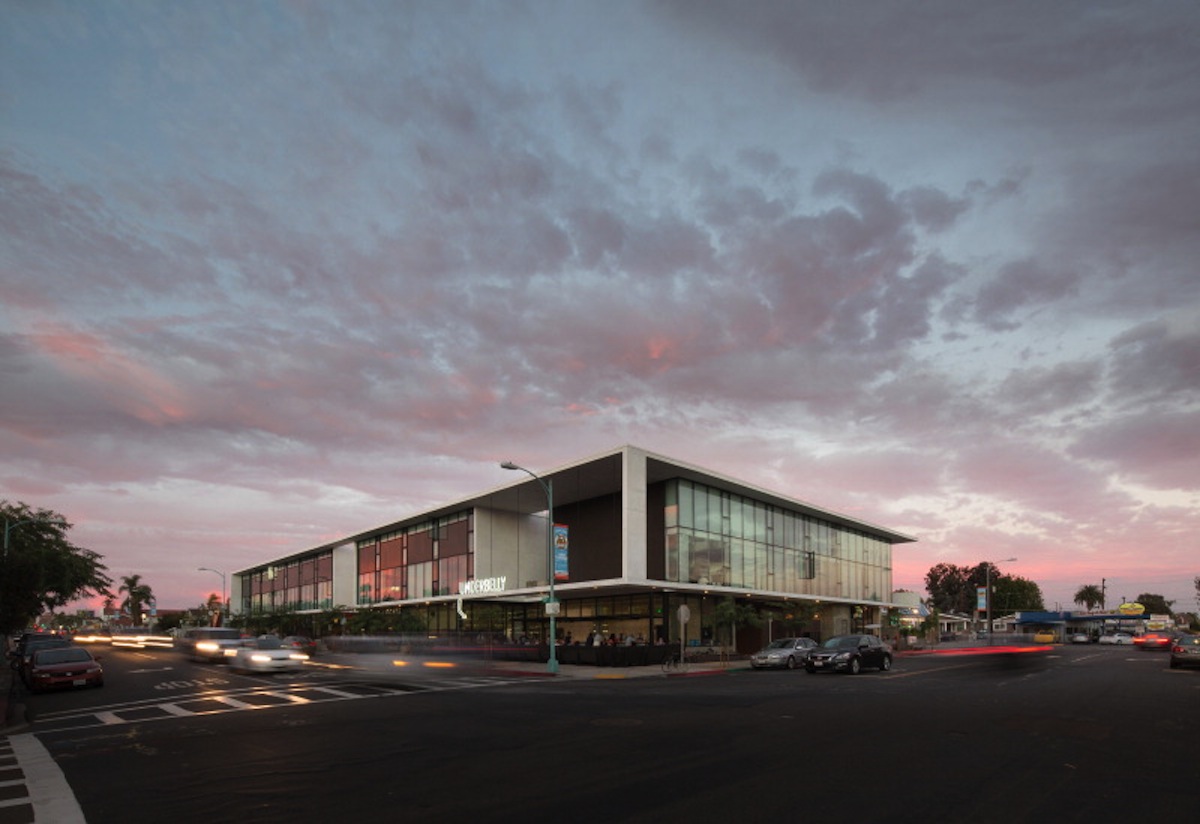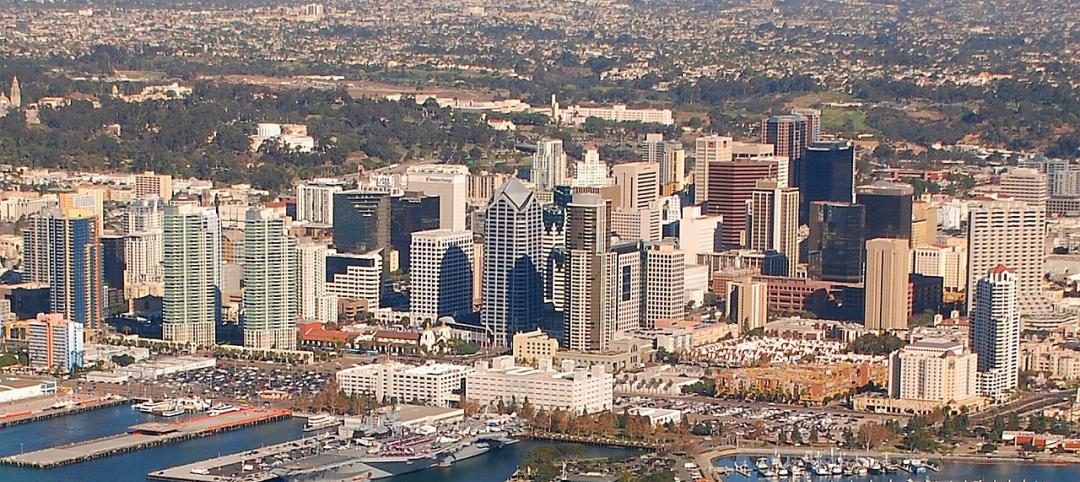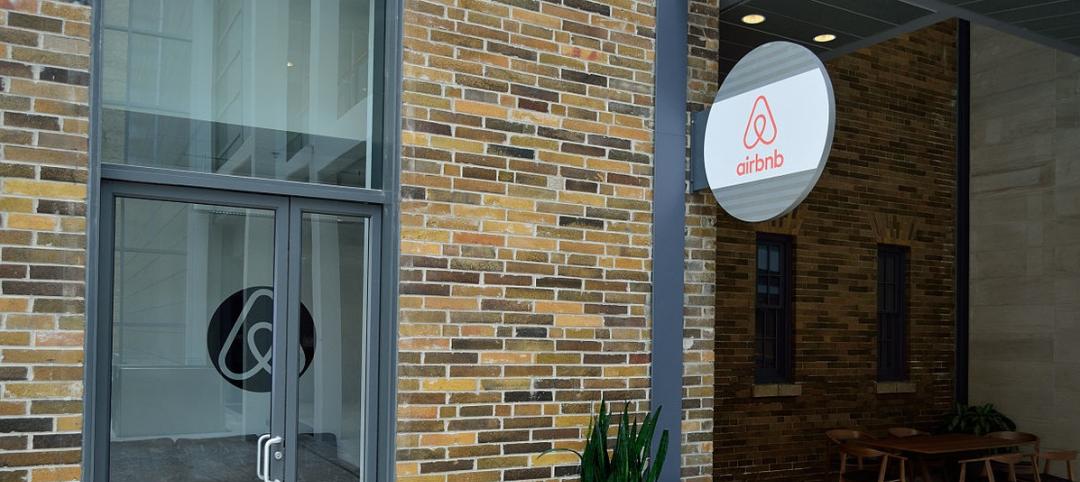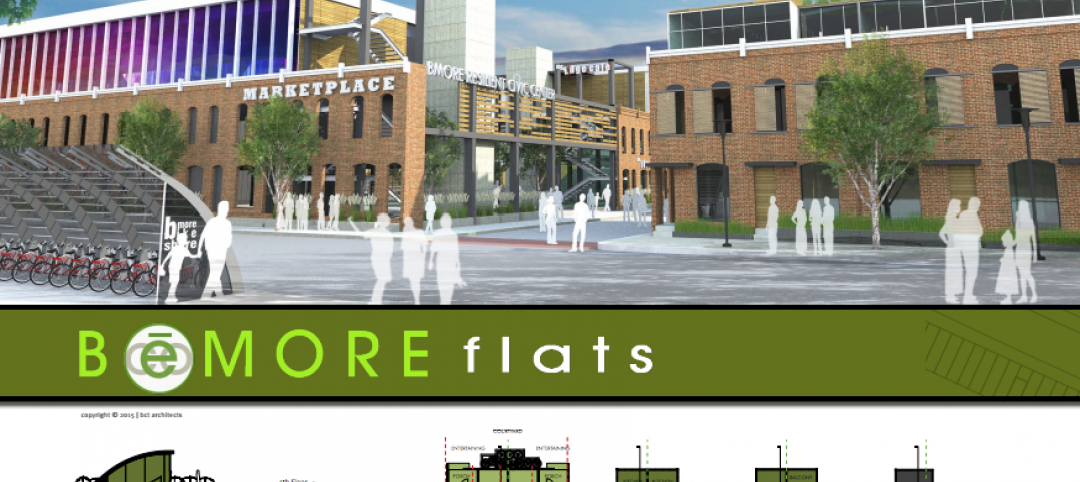The American Institute of Architects (AIA) selected the winners of its 2015 Housing Awards. The competition honored 10 projects across the country, including three affordable projects in the Multifamily Housing category.
The Multifamily Housing award recognizes outstanding apartment and condominium design. Aside from the architectural design features, the jury chose buildings based on context, transportation options, and features that contirubte to livable communities.
The three multifamily winners are:
Bayview Hill Gardensm, San Francisco
David Baker Architects
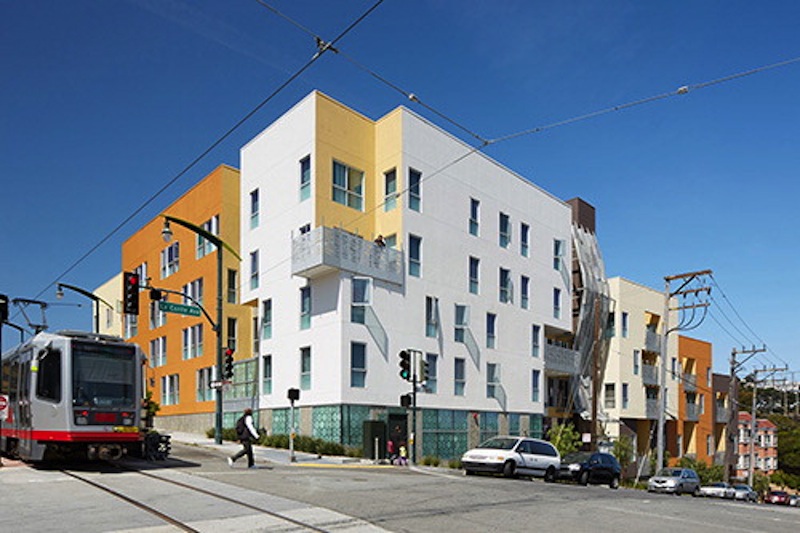 Image: Bruce Damonte and Matt Edge
Image: Bruce Damonte and Matt Edge
After years in the development pipeline, this bright new building now replaces a crime-ridden site with safe and stable homes. This is the only building dedicated to formerly homeless families in its neighborhood, which has the second highest homelessness rate in the city. Its opening moved many families off waiting lists for overtaxed shelters and has reduced pressure on emergency services.
The new secure building brings 73 homes, positive energy, and "eyes on the street" to the neighborhood. Formerly homeless families and transition-aged youth are provided stable new homes with "welcome kits" of furnishings and supplies. A comprehensive range of support services, including child-specific programs are offered in the building's convenient on-site offices. The 115 kids living in the building receive healthy snacks, homework help, after-school care, and chaperoned field trips.
In the central courtyard, 8,500-square-foot urban garden with fruit trees, vines, and planting beds allows residents to grow their own food and get their hands dirty. Varied-height planters accommodate people's differing relationships to the gardening beds - for adults, teens, children, and those with mobility differences - as well as providing places to rest or socialize in the garden court. A local gardening non-profit oversees this "edible landscape," with residents providing the daily garden care.
By providing increased safety and increased housing capacity and density as well as on-site social and vocational services for residents, the development supports residents and fosters the cultural and economic diversity of the neighborhood.
David Baker, FAIA, was the associate architect, interior designer was David Baker Architects, and OLMM Consulting Engineers served as the structural engineer on the project.
Broadway Affordable Housing, Santa Monica, Calif.
Kevin Daly Architects
 Image: Iwan Baan
Image: Iwan Baan
The objective of Broadway Housing is to provide low-income families with affordable housing that is both environmentally and economically sustainable in an urban area with a serious lack of available affordable housing options.
The primary population served by this project is low-income families earning between 30% and 60% of Area Median Income. The property consists of 2- and 3-bedrom units with rents ranging from about $560 to $1,300 per month. A market study was conducted to demonstrate the need for these units in the city. The market study determined that there was a need for 7,931 2-bedroom units serving this income range and 6,725 3-bedroom units within the west side of Los Angeles.
The property's convenient regional and local access and proximity to services make the subject site particularly attractive for the construction of affordable apartments. The complex offers residents two community rooms run by the Boys & Girls Club, computer room, laundry facility, open areas with landscaping and fruit trees, a picnic area, and an on-site manager.
Associate architects on the project were Tom Perkins, Kody Kellogg, Jason Pytko, Gretchen Stoecker, and JAred Ward. TK1SC was the mechanical engineer and John Labib & Associates was the structural engineer.
The North Parker, San Diego
Jonathan Segal, FAIA
 Image: Matthew Segal
Image: Matthew Segal
The North Parker project is now the southern gateway to the newest transitioning neighborhood in San Diego. The corner of 30th Street and Upas Street, previously blighted with decaying structures and a propensity towards vagrants, is now a community gathering point.
The affordable housing project houses 27 units on the floor above the ground plane and four commercial spaces, which consist of two restaurants, a beer-tasting bar, and an architectural office all engaging and interacting with each other. The street level façade recedes into the property, forming outdoor community gathering and interaction spaces serving the retail, thus opening the property completely to the community.
As you move through the project, a true sense of pedestrian-scale and community interaction is evident, as you notice the garden courtyard, private decks, and circulation paths interwoven through the project. There are no gates or boundaries. There are no double-loaded corridors.
The public and constant pedestrian flow secures the property naturally. Public people can move freely throughout the entire property, only limited by low physical boundaries when approaching the individual units. Multiple entrances through different nodes of the project allow you to transfer between the commercial ground plane along the street, to the interior garden and courtyard space and then up the stairs to the second level residential circulation path.
Tenants enter their units through semi-private exterior patios raised two feet above the adjacent public walkway. These raised patios allow for a sense of privacy while maintaining visual connection to the central court, further enhancing the sense of community. Upon entering your private space, you are allowed an unobstructed visual connection all the way through the unit with floor-to-ceiling glazing the full width of the unit peeking straight into the urban public landscape.
DCI Engineers served as the project's structural engineer and SeaBright Company was the civil engineer.
To read the full list of winners from the 15th annual AIA Housing Awards, click here.
Related Stories
Urban Planning | Jan 4, 2016
The next boomtown? Construction and redevelopment sizzle in San Diego
The city's emission-reduction plan could drive influx into downtown
Multifamily Housing | Dec 23, 2015
Student housing developer broadens its reach into multifamily
Aspen Heights Partners evaluates seven metros for its initial projects.
Multifamily Housing | Dec 17, 2015
Developers respond to demand from tenants for ‘smart’ design
A number of green prerogatives are having a beneficial impact on multifamily design and construction.
Multifamily Housing | Dec 14, 2015
Study finds increase in cost-burdened renters
Harvard’s Joint Center for Housing Studies released its biennial rental housing report, and it found that 21.3 million renters spend 30% or more of income towards rent.
Multifamily Housing | Dec 10, 2015
Developer of Jean Nouvel-designed New York City condo complex sued
One resident says living in the curvy, glass 100 Eleventh Avenue building is like being in a wind tunnel.
Multifamily Housing | Dec 7, 2015
Are long-term apartment rentals Airbnb’s next target?
Some developers are thinking about that possibility, says one West Coast real estate consultant.
Smart Buildings | Dec 7, 2015
AIA Baltimore holds rowhouse redesign competition
Teams competed to provide the best social and environmental design solutions for the city’s existing rowhouse stock.
Multifamily Housing | Nov 19, 2015
Herzog & de Meuron designs curving NYC luxury apartments
The 160 Leroy building will have 49 luxury homes, along with a white concrete façade covered with large windows.
High-rise Construction | Nov 17, 2015
CTBUH awards '2015 Best Tall Building Worldwide' to Bosco Verticale
Designed by Italian architect Stefano Boeri, the building design was applauded for its “extraordinary implementation of vegetation at such scale and height."
Multifamily Housing | Nov 17, 2015
A new luxury high rise reflects a resurgent condo market in Miami Beach
GLASS is one of several residential buildings in the works in that city’s hot South of Fifth neighborhood.


